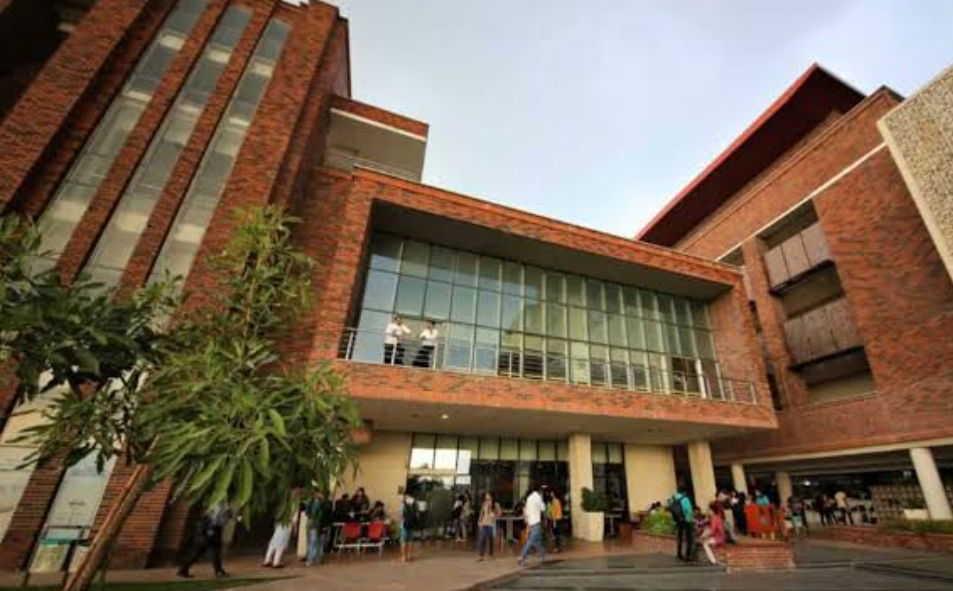Academic Freedom Is Not Absolute


Writer – Balbir Punj
The trigger for the present debate was provided by the resignations of two professors— Sabyasachi Das and Pulapre Balakrishnan, from the Economics Department of Ashoka University. The detractors of the Modi regime have since been weaponising these resignations and are quoting the so-called ‘global sentinels’ of academic freedom to paint India as a slaughterhouse of academic freedom.
While I find myself inadequate to comment on the merits of the Ashoka University case, I have absolutely no faith in the self-proclaimed policemen of global morality and ethics and their methodologies and findings. Their credentials are suspect. V-Dem’s funders include “Open Society Foundation”, headed by US billionaire George Soros, who in 2019 had publicly announced his intentions to reconfigure Indian politics to suit his ideological perceptions and world view.
In 2022, V-Dem Institute’s Academic Index Freedom graph showed India below Pakistan and Taliban-ruled Afghanistan, and along with Hong Kong and China. Nepal has secured the highest score on the Academic Freedom Index in Asia documented in 2021, according to V-Dem.
In October 2022, India was ranked 107th out of 121 countries in the Global Hunger Index. The anti-India bias is clear. Neighboring countries— Pakistan (99), Bangladesh (84), Nepal (81) and Sri Lanka (64) – all fared ‘better’ than India. Global Hunger Index is released by an Irish and a German NGO. Both are inspired by the Church.
India has had, and still has, a reasonable good record of pluralism and intellectual freedom. Jesus Christ was put on a cross over two millennia back, because He preached something, not to the liking of powers that be. But five centuries prior to the Christ’s crucifixion, Lord Buddha, too had a fresh message for humanity, rejecting several of the contemporary popular beliefs. Buddha was first called Mahatma and later Bhagwan by his fellow Indians.
However, India’s pluralistic ethos suffered a major setback in 1193, when an Islamic zealot, Bakhtiyar Khilji invaded Nalanda University, and moved on to destroy other universities as well. Later on, Odantapuri, Sompur, Ratnagiri, Pushpagiri, Vallabhi too were pulverised by other Muslim invaders.
The West, which was in the Church stranglehold till about 200 years back, had no tradition of intellectual freedom. In the US, in the 1980s and ’90s, many universities adopted regulations aimed at proscribing speech and writing that was deemed to be against the prevailing value system. Surely, such regulations impinged on the academic freedom.
In India, both Congress and the Left have frequently used state power to suppress that’s ideologically inconvenient to them. The first book banned in Independent India was Nikos Kazantzakis’s historical novel ‘The Last Temptation of Christ’ (1960). ‘Nehru: A Political Biography’ by Michael Edwards, (1975) was banned too purportedly as it contained grievous factual errors.
M. O. Mathai, the private secretary of Jawaharlal Nehru from 1947 to 1959, wrote a book on Nehru in 1978 titled ‘Reminiscences of Nehru Age’, which had 49 chapters. It remined banned till a chapter inconvenient to Nehru family was dropped. ‘The Heart of India’ (1958) by Alexander Campbell was the other book banned under the Congress regime for the reason that it is hideous.
‘The Red Sari’ (2010), authored by Javier Moro, a Spaniard, was a novel allegedly based on Sonia Gandhi’s life. It was banned and released five years later.
Dr. Subramanian Swamy, had joined IIT Delhi as a Professor of Economics in 1969 but he was terminated without notice in 1972 and so was his wife, Dr. Roxna Swamy, who taught mathematics at the institute. Dr. Swami’s crime: He was a critic of the then PM Indira Gandhi and supporter of Jan Sangh. The defiant couple was evicted from their staff quarters abruptly.
Works of noted authors such as Taslima Nasreen (1993) and Salman Rushdie (1988) were banned in India, even before any one in India had even read them.
In July 2010, the hand of Kerala professor TJ Joseph was cut off by members of the now-banned Popular Front of India (PFI) after he was allegedly accused of insulting Islam.
In January 2015, Ms. Shireen Dalvi, editor of Awadhnama was arrested for reprinting the controversial cartoon of Prophet Mohammed.
Ambikesh Mahapatra, a chemistry professor at Jadavpur University in Kolkata, spent nearly 11 years in jail after he was arrested for forwarding allegedly derogatory cartoon about West Bengal’s chief minister Mamata Banerjee. He was recently released on court orders.
Nowhere in the world, academic freedom is absolute— it is calibrated by the contemporary socio-political value system. In 1951, the Nehru administration made a provision limiting Article 19(1)(a) of the Constitution against “abuse of freedom of speech and expression”. “Every freedom in the world is limited,” said an impassioned Nehru in Parliament, debating why the press needed to be leashed (29-May-1951).
Mr. Balbir Punj is a Former Member of Parliament and a Columnist.
punjbalbir@gmail.com
DISCLAIMER: The author is solely responsible for the views expressed in this article. The author carries the responsibility for citing and/or licensing of images utilized within the text.
